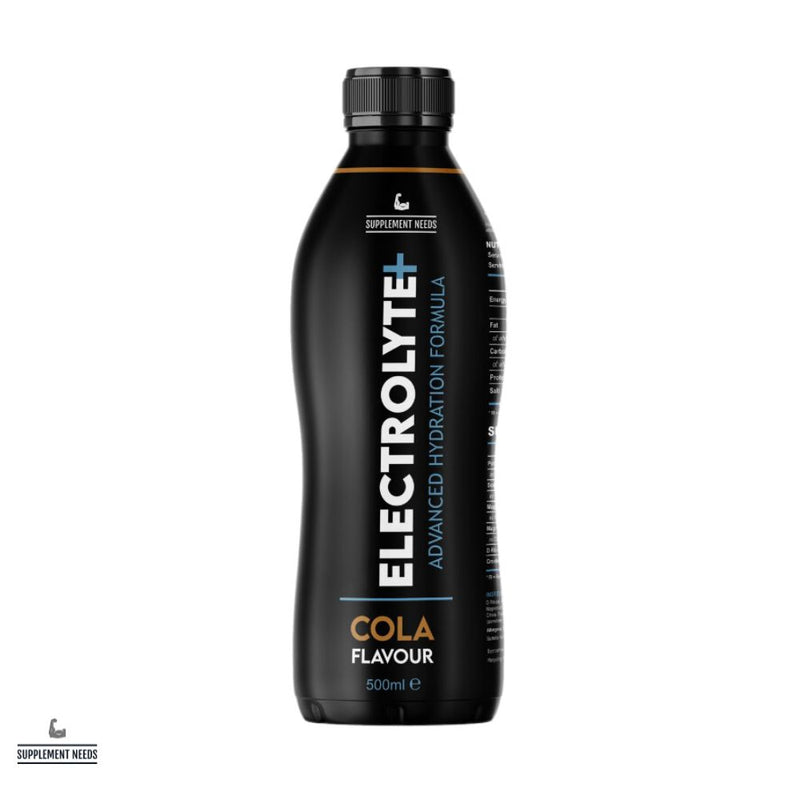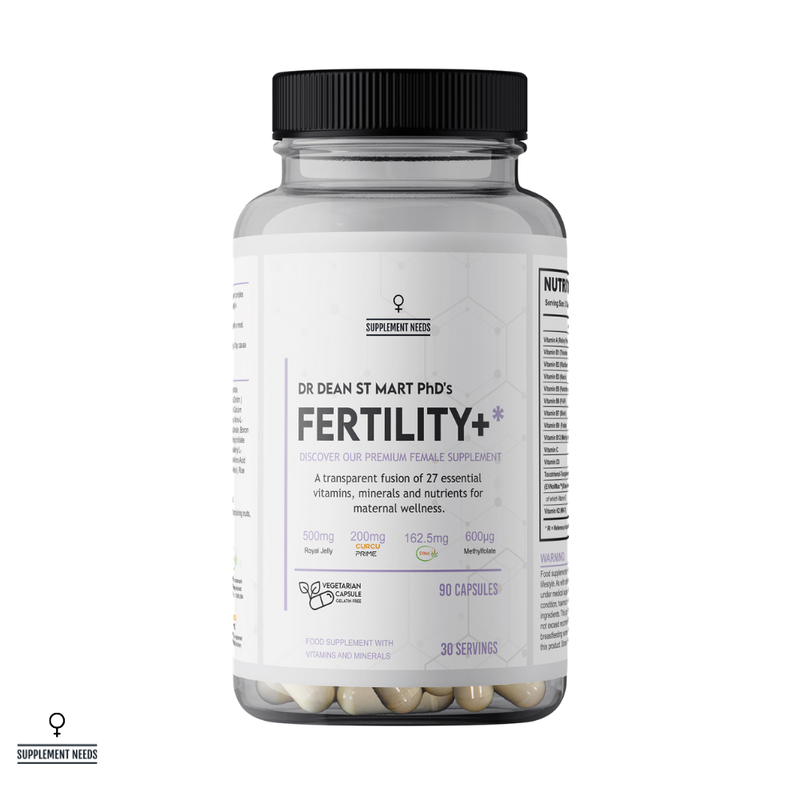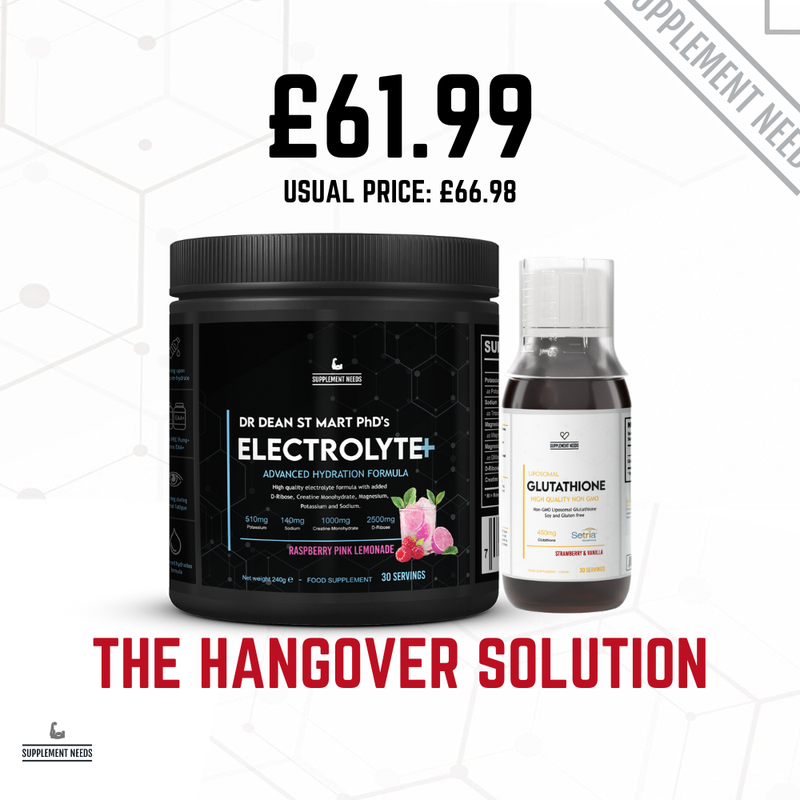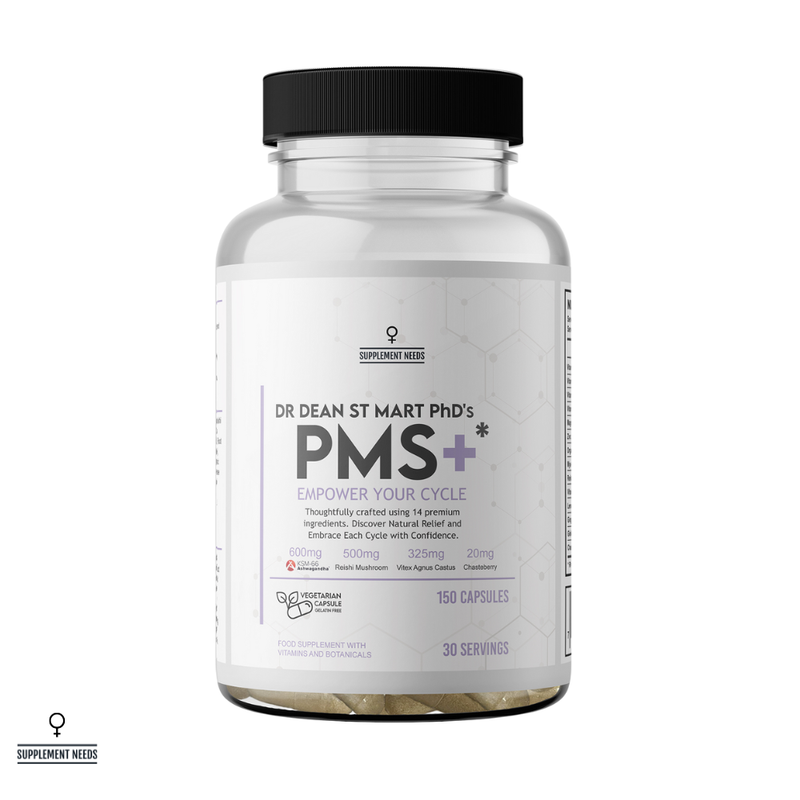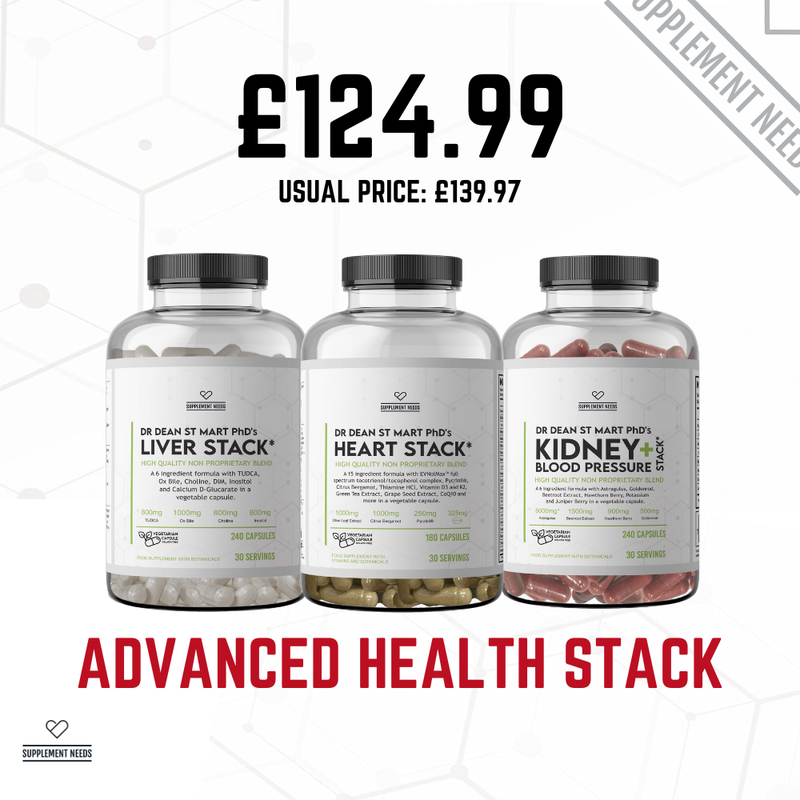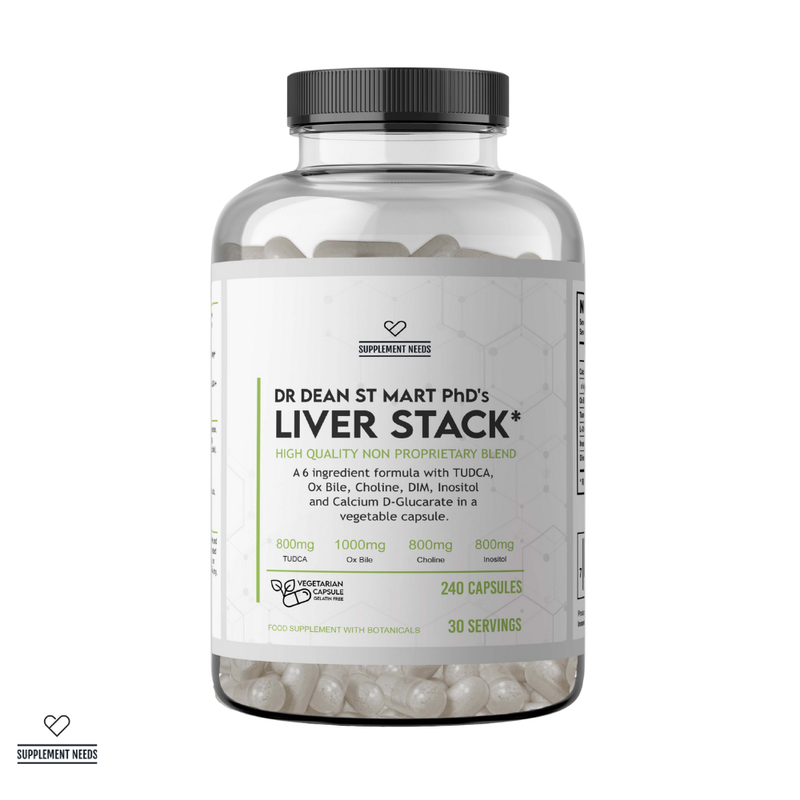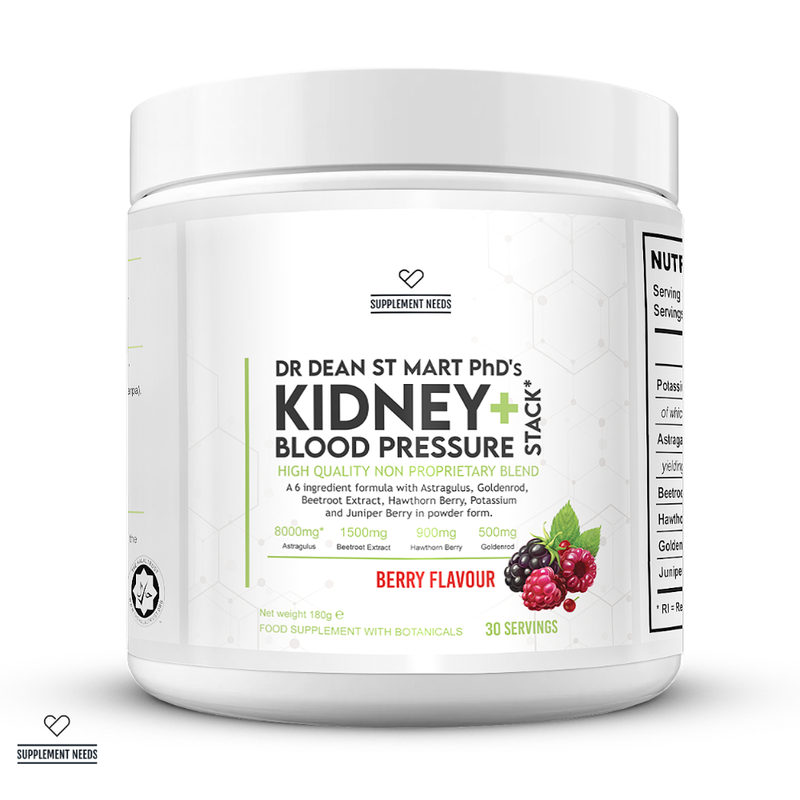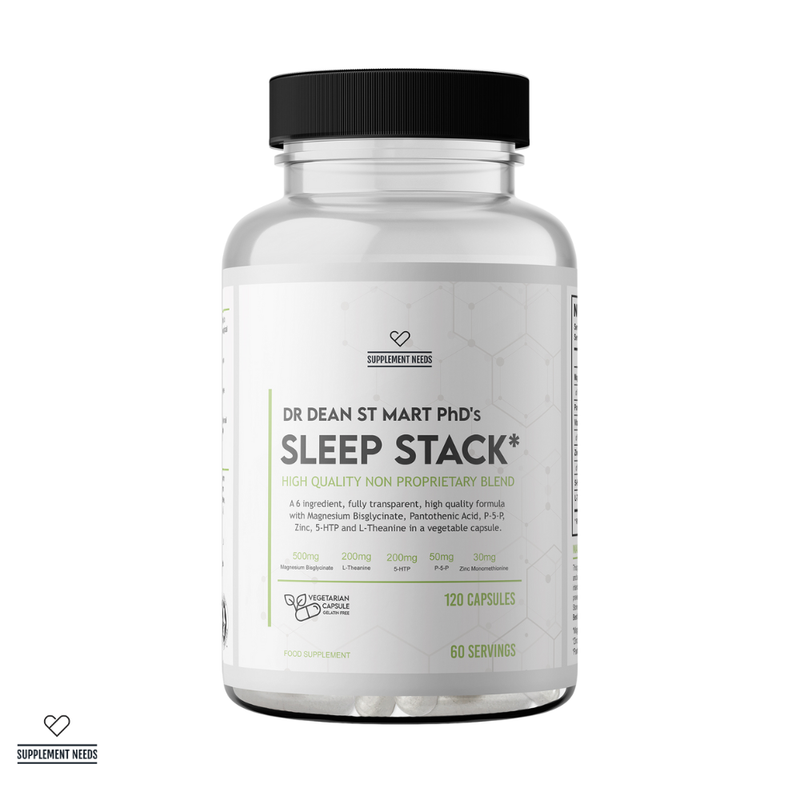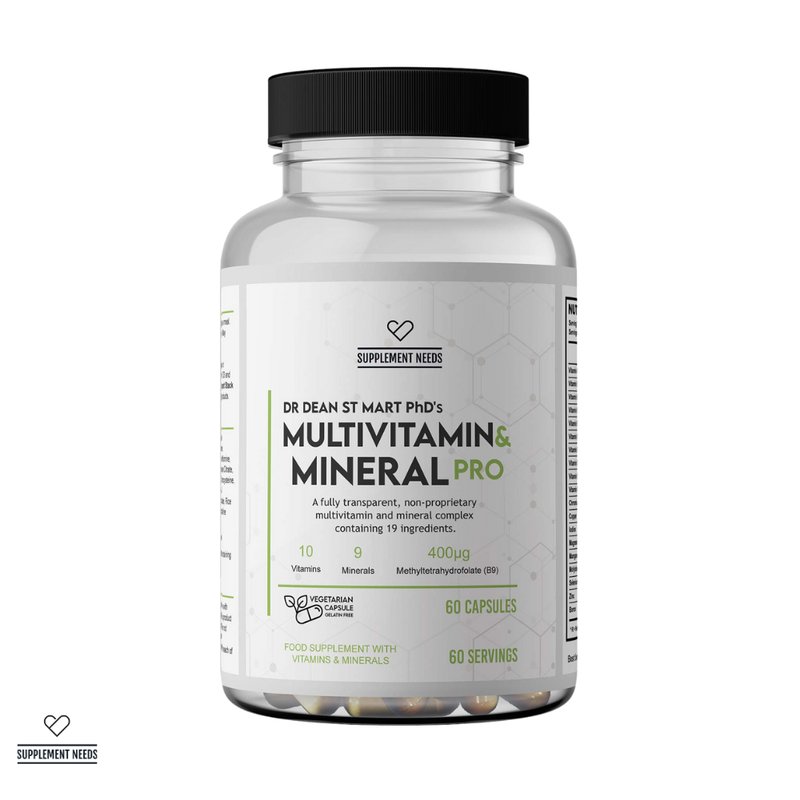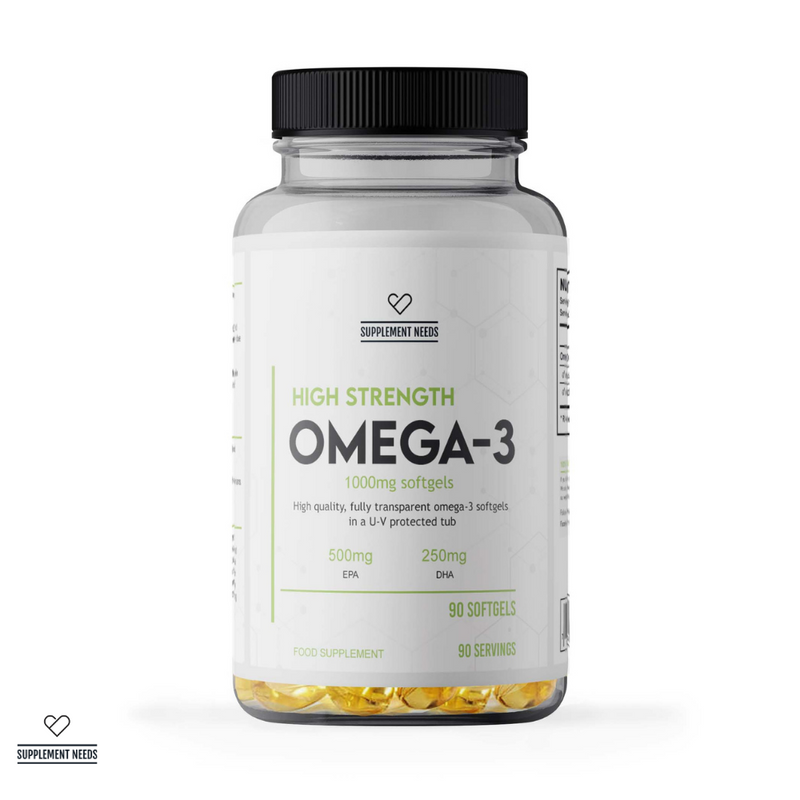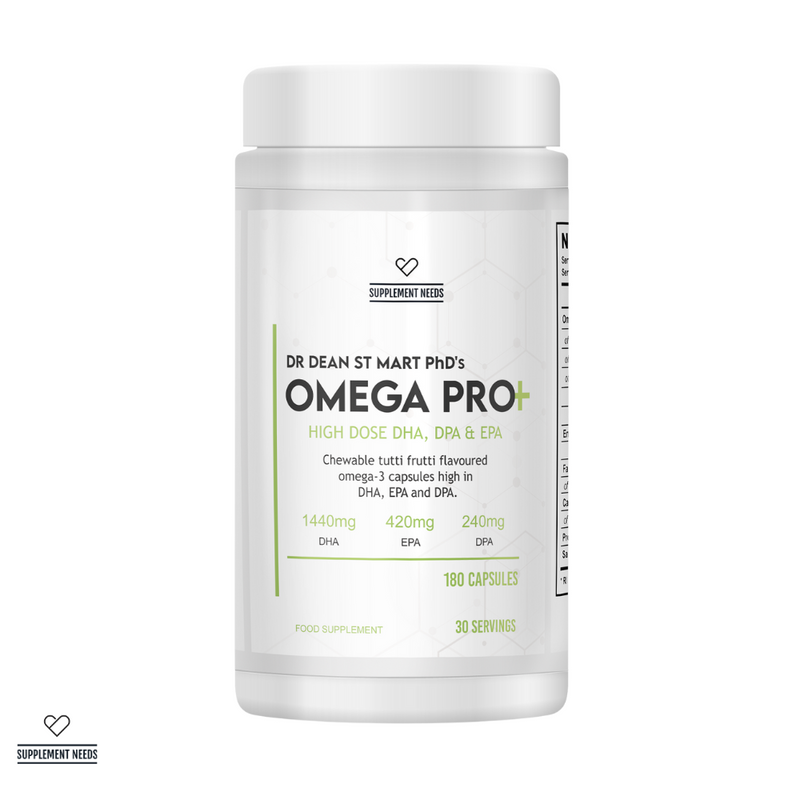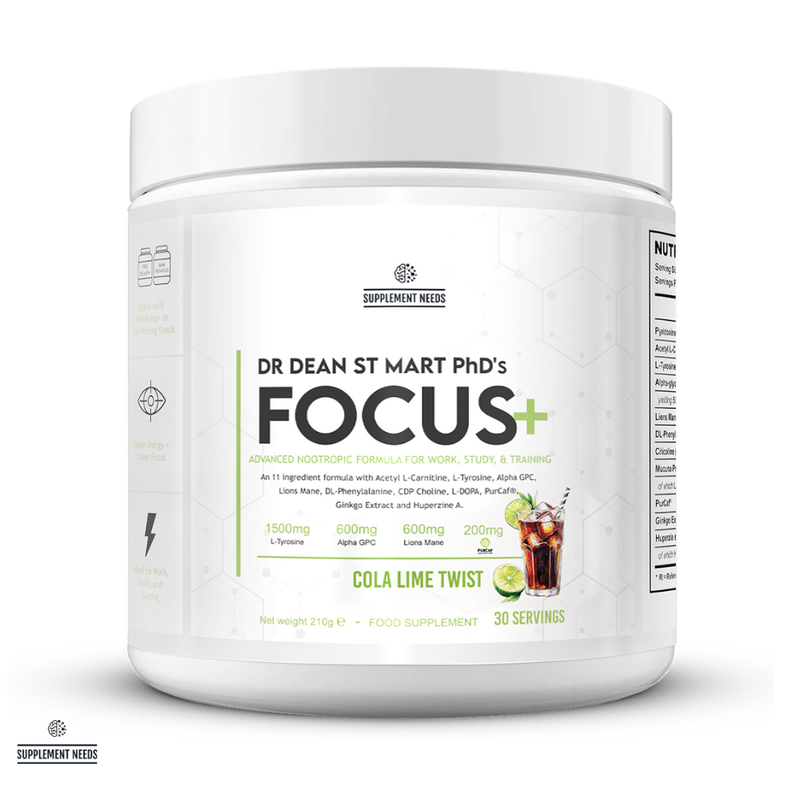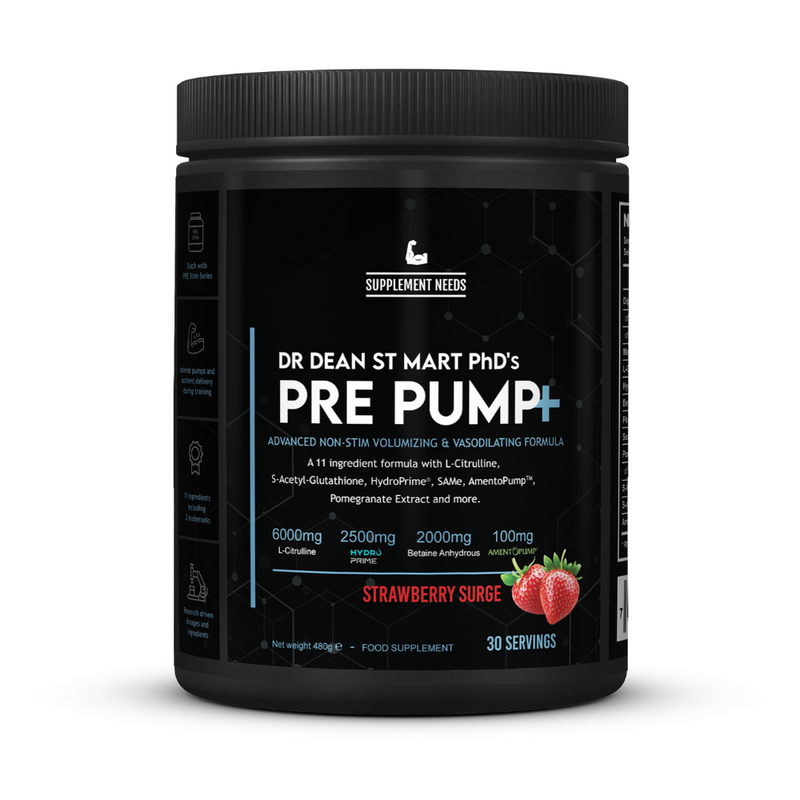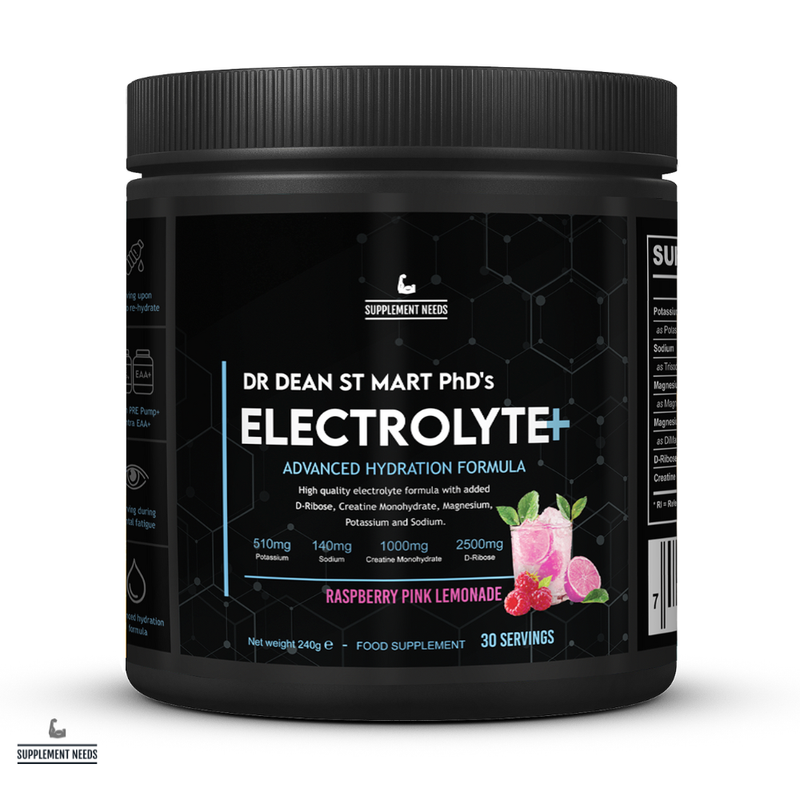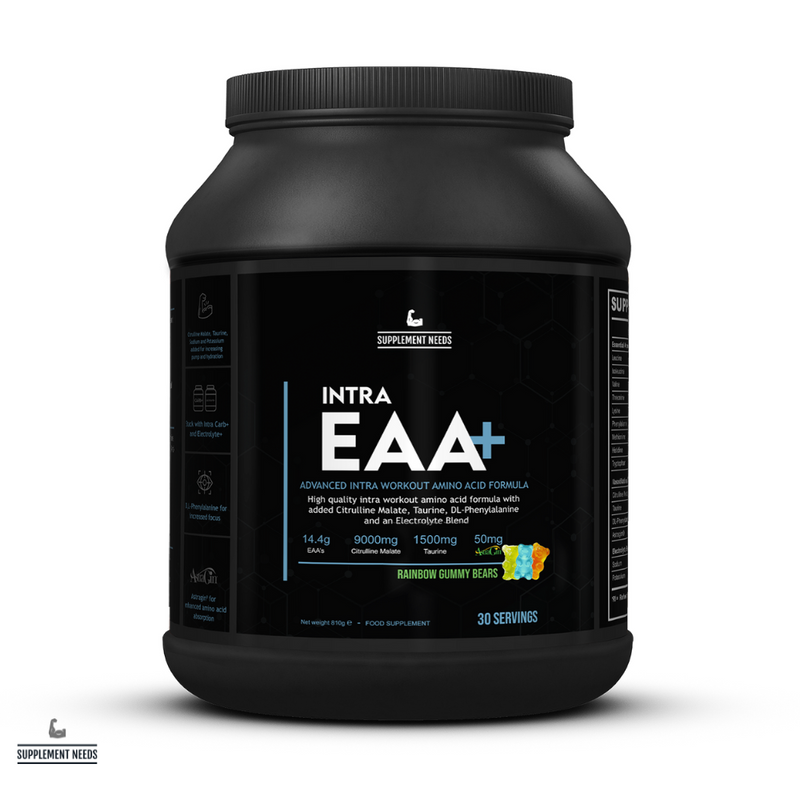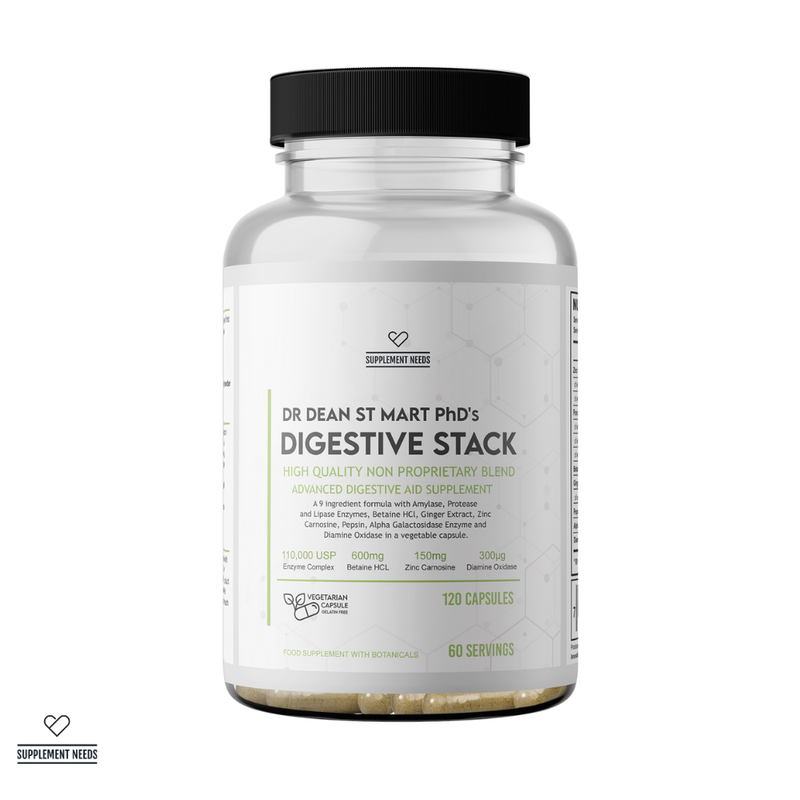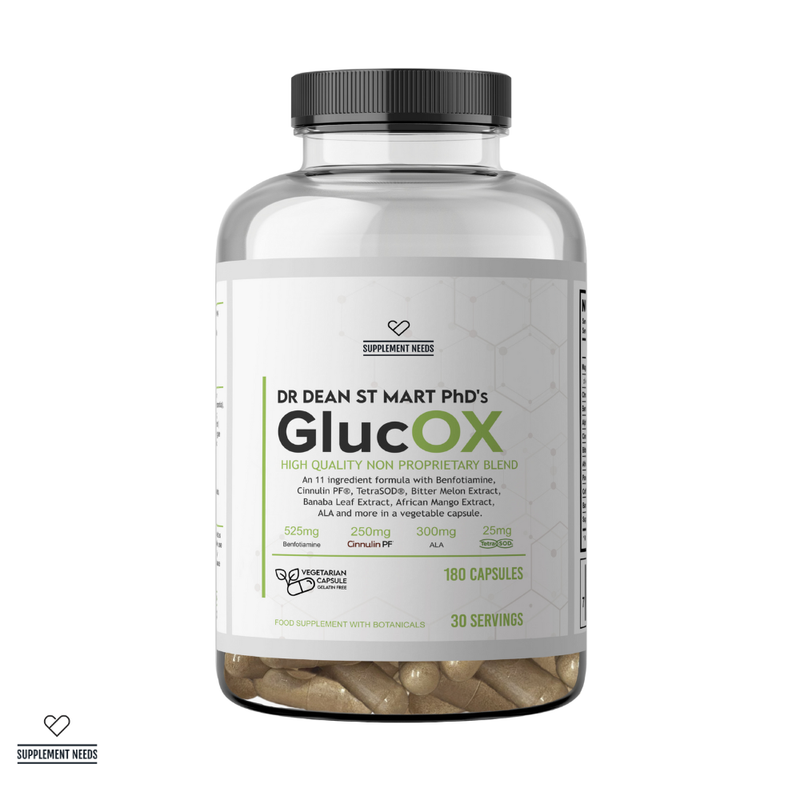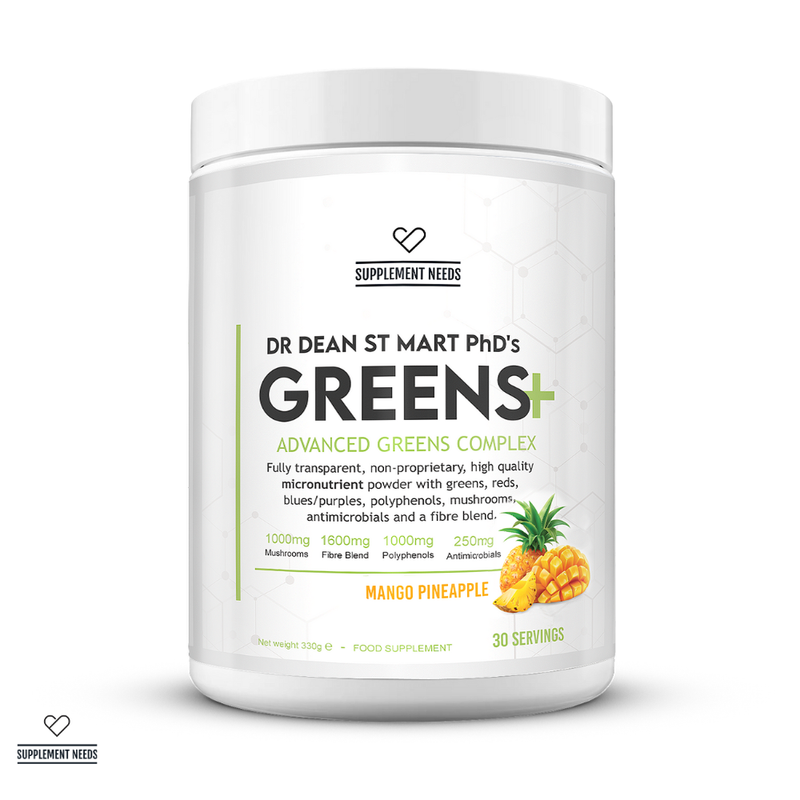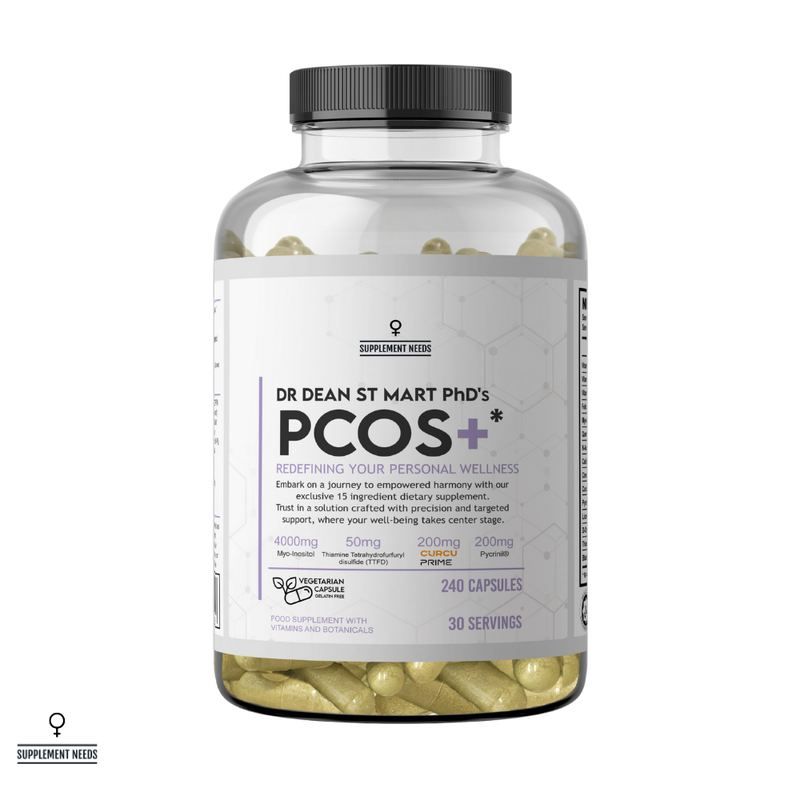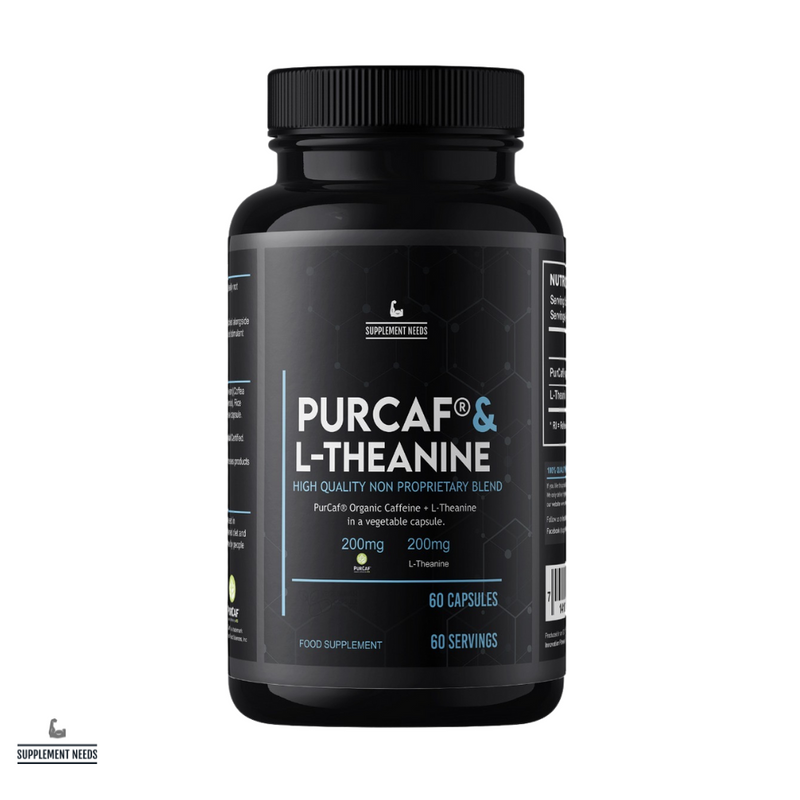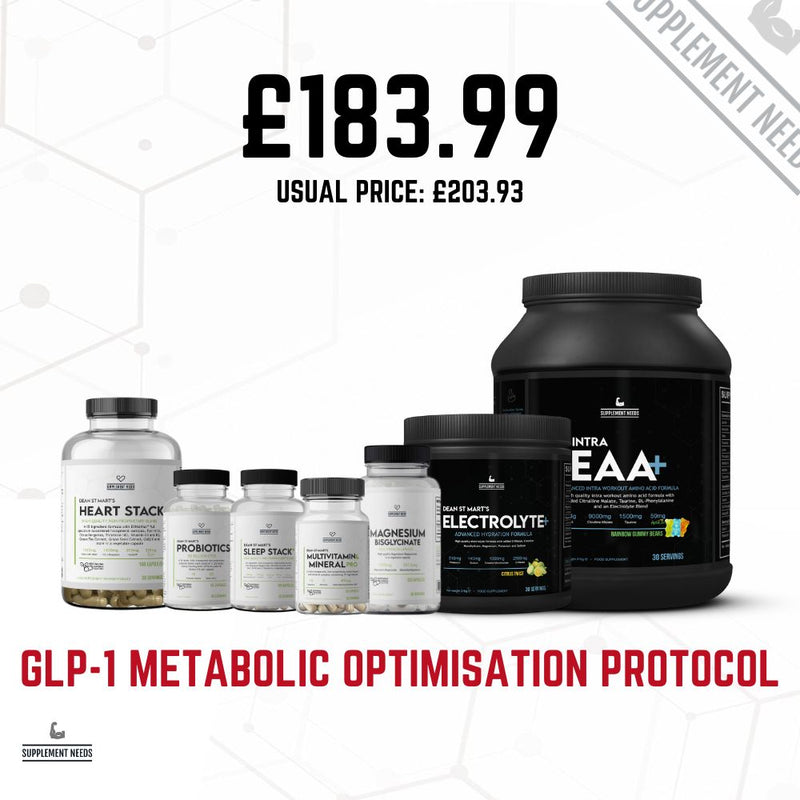If you’re looking to maximise your chances of conception, then you may be considering taking a supplement (or supplements). However, as a quick Google search will show you, there are literally thousands to choose from! So, how do you select the very best pregnancy supplement? And, what should you be looking for in one? The Supplement Needs team is about to give you the answers…
What is a pregnancy supplement?
Before we go on, we’d like to actually define what we mean by the term ‘pregnancy supplement’.
Whilst there isn’t an official scientific definition as to what constitutes a pregnancy supplement, you’ll typically find that the majority of pregnancy supplements on the market take the form of a multivitamin capsule.
You’ll find that these pregnancy-specific supplements are formulated to include a series of vitamins, minerals and other ingredients that can be beneficial for those who are seeking to conceive.
As we’ll see, however, it’s the exact composition of these supplements (including not just the blend of ingredients, but the dosage of ingredients) that really determines whether a pregnancy supplement can be considered to be ‘worthwhile’ or not.
What’s the difference between pregnancy supplements and prenatal supplements?
As you shop around online, you’ll start to notice supplements with various names, including ‘pregnancy supplements’, ‘fertility supplements’ and ‘prenatal supplements’.
Again, this is a bit of a grey area as there’s no official definition as to what constitutes a supplement, however, there are some distinct differences you should be aware of.
As a general rule, you can divide these supplements into two areas:
- Pregnancy/fertility multivitamins - these are supplements that are designed and formulated to be taken pre-pregnancy when a woman is attempting to conceive.
- Prenatal multivitamins - these are supplements that are designed to be taken once a woman is pregnant, and are designed to provide additional dietary support throughout the lifecycle of the pregnancy.
You will also see some supplements that are designed to be taken post-pregnancy.
Do you need to take supplements to get pregnant?
Whilst it’s entirely possible to get pregnant without taking supplements - with around 45% of all pregnancies in England being unplanned1 - supplements can potentially improve your likelihood of conceiving.
You should also bear in mind that there are several risk and/or lifestyle factors that can make conception challenging. These include:
- 1 in 7 couples experience difficulty conceiving2. This is potentially part of a broader trend which has seen declines in fertility across much of the Western world3.
- There is a growing trend in the UK4 for childbearing to occur at a later time in women’s lives. However, the optimum period for childbearing is between 20 and 35 years of age5.
- Many women are not nutritionally prepared for pregnancy, and are not meeting even the lower reference nutrient intake amounts6. In other words, this means that their diets are not providing the complete vitamins and minerals they require for optimal preconception health.
- Around 50% of all women of childbearing age in England are either overweight or obese. Studies7 have indicated that obesity can have an adverse impact upon fertility, with overweight women having higher incidences of menstrual dysfunction and anovulation.
- If you smoke, then this can also have an adverse impact upon your fertility. Studies8 have indicated that smoking is associated not just with reduced fertility, but infertility.
- If you regularly drink alcohol - even lightly - this could reduce your fertility9 and subsequent chances of becoming pregnant.
As you can see, there are a variety of lifestyle and health factors that can have an impact upon your fertility.
Of those factors, one that stands out - and is arguably the easiest to rectify - is being nutritionally prepared for pregnancy.
It’s for the above reason that bodies such as the National Health Service (NHS) actively recommend that women take particular supplements if they are trying to get pregnant.
At the time of writing (November 2023), the NHS recommends10 that women who are attempting to get pregnant, supplement their diet with:
- 400 micrograms of folic acid every day. This should be taken orally in a tablet/capsule form.
- A daily Vitamin D supplement. Once you are pregnant, this should be taken at a dose of at least 10 micrograms each day.
Folic acid
Folic acid - which is also known as Vitamin B9 - is one of the B complex of water-soluble vitamins and plays a critical role in producing healthy red blood cells and supporting the body during periods of rapid growth - such as during pregnancy.
To give you some context as to the level of Vitamin B9 you should take in preparation of getting pregnant, consider the following. Here in the UK, the standard recommended daily intake11 of Vitamin B9 for women between the ages of 19 and 64 is 200 micrograms. Thus, if you are attempting to get pregnant, you should be taking double the standard recommended dose of folic acid (400 micrograms).
One of the questions that may immediately pop into your head is likely to be, “but why do I need to take folic acid? What does it do?”
The answer begins around thirty years ago, when British researchers discovered12 that mothers who gave birth to children with birth defects (specifically spina bifida - a type of neural tube defect) had low vitamin levels.
This first study led to two large-scale clinical trials which saw women randomly assigned either a placebo (a pill with no therapeutic benefit e.g. a pill made of sugar) or a folic acid supplement.
The results of these trials confirmed that ‘getting too little folate increased a woman’s chances of having a baby with spina bifida or anencephaly and that getting enough folate could greatly reduce the incidence of these birth defects’13.
It’s important to note that folic acid can not only help prevent birth defects, but a recent tranche of studies has indicated that it can also improve your fertility14.
Note - the terminology around this vitamin can be confusing. You will find that the terms ‘folic acid’ and ‘folate’ are used interchangeably. Folate refers to the naturally occurring forms of Vitamin B9, whilst folic acid refers to the synthetic (man-made) form. These synthetic forms of Vitamin B9 (folic acid) are what you’ll typically find in supplements. These different forms of folic acid include L-5-Methyltetrahydrofolate (which is highly absorbable by the body)15.
45-60% of the population has a genetic change (termed a polymorphism) in the gene called MTHFR; meaning they have difficulty converting synthetic folic acid into active folate. It’s for this reason that we completely and wholly suggest the switch is made to folate when considering Vitamin B9 supplementation.
Vitamin D
So, why does the NHS also recommend that women attempting to get pregnant take a Vitamin D supplement in addition to folic acid?
The answer is a varied one.
Firstly, Vitamin D actually refers to a group of related fat-soluble compounds. The most important of these for human health are Vitamin D3 (cholecalciferol) and Vitamin D2 (ergocalciferol).
Together, these forms of Vitamin D help your body to absorb important minerals such as calcium, magnesium, and phosphorus. In turn, Vitamin D (once absorbed and converted into calcitriol) helps your body to maintain healthy bones.
A plethora of studies have indicated that Vitamin D can play an important role in fertility. Observational studies have shown that Vitamin D deficiency is a risk marker for reduced fertility and various adverse pregnancy outcomes16. Further studies have found that low Vitamin D status has been associated with an increased risk for infertility17.
Vitamin D can be sourced exogenously (from outside the body), from foods such as oil fish, red meat, liver, egg yolks, and certain fortified foods. It can nevertheless be a challenge to obtain sufficient amounts (particularly if you’re attempting to get pregnant).
It’s also possible to obtain Vitamin D directly from sunlight - yes, that’s right - your body can synthesise (that’s another way of saying ‘create’) Vitamin D. This happens when your skin is exposed to natural sunlight. Without going into overly technical detail, cholesterol in your skin known as 7-dehydrocholesterol absorbs ionising ultraviolet radiation and turns into pre-Vitamin D3.
Despite Vitamin D being available from both foodstuffs and sunlight, many women on their pregnancy journey struggle to obtain enough Vitamin D. It’s for this reason that many health professionals recommend supplementing Vitamin D during the preconception period.
Note - it’s not just women attempting to get pregnant who can experience low levels of Vitamin D. According to the National Diet and Nutrition Survey18, 1 in 6 adults in the UK have a Vitamin D deficiency.
What to look for in a pregnancy supplement
Okay, so far we’ve seen that whilst you don’t have to take supplements to get pregnant, there are at least two which are strongly recommended by health bodies such as the NHS.
However, as we’ll see, there are a number of other vitamins and minerals that you should look for in a pregnancy supplement - as well as some important characteristics to look for.
We’ll take you through these vitamins, minerals and characteristics below.
An efficacious mix of water-soluble vitamins
If you’ve read our guide to multivitamins and minerals, then you’ll know that your body requires ‘essential vitamins’ in order to support the metabolic functions that make your body the way it should. Although they don’t provide energy directly to the body, they are responsible for crucially important anabolic and catabolic processes.
Ensuring you have enough of these vitamins is especially important when you’re attempting to conceive.
These essential vitamins can be divided into two main groups; water-soluble vitamins and fat-soluble vitamins.
Any pregnancy supplement worth its salt will contain all the water-soluble vitamins.
Below, we’ve set out what these water-soluble essential vitamins are, and how they can contribute towards fertility:
Vitamin B1 (Thiamin)
As one of the B complex of vitamins, Vitamin B1 - also commonly known as Thiamin - plays an important role in carbohydrate metabolism (turning the carbs in your food into usable energy).
Whilst there has been limited research into the effects of a Vitamin B1 deficiency and a concomitant impact on fertility, some studies19 have found that a Thiamin deficiency could compromise egg cell health.
As pregnancy leads to increased utilisation of Thiamin, it’s essential that your body has sufficient levels of Vitamin B1 prior to conception - hence its inclusion in quality pregnancy supplements such as Supplement Needs’ Fertility+.
This supplement contains 5 mg of Thiamin (as Thiamine HCI - the hydrochloride salt form of Thiamine. This form of Thiamine is water-soluble making it more easily absorbed by the body).
Vitamin B2 (Riboflavin)
Another of the B complex of vitamins, Riboflavin is used by your body to metabolise fats, protein and carbohydrates - ensuring that what you eat can be properly utilised.
Conversely, if you have a Vitamin B2 deficiency, macronutrients such as fats, carbohydrates, and proteins cannot be properly digested - meaning your body won’t be in an optimal nutrient condition to support conception.
Furthermore, an animal-based study20 has found that a Vitamin B2 deficiency can have an adverse impact upon reproductive performance. As this study summed up, ‘with no added Riboflavin in the diet, reproduction was severely impaired’.
As we’ve seen, adequate nutrition is imperative if you’re trying to get pregnant, so Vitamin B2 is a ‘non-negotiable’ when it comes to pregnancy supplements.
Supplement Needs’ Fertility+ contains 5 mg of Riboflavin (as Riboflavin 5 Phosphate - which is a bioactive, ‘tissue-ready’ form of Riboflavin, meaning it’s more easily absorbed by your body).
Vitamin B3 (Niacin)
Vitamin B3 (also known as Niacin) is used by the body for myriad purposes, including the repair of DNA, maintaining metabolic processes, and energy production.
In many ways, Niacin is one of the most important vitamins for metabolism as the enzymes which are involved in energy metabolism require Niacin.
Given the important - some would say ‘foundational’ role - that Vitamin B3 plays in supporting the body’s metabolism, it naturally follows that it’s important that your body is not deficient in this vitamin when you’re trying to conceive.
Furthermore, Niacin can play an important role in supporting the body once you are pregnant. Niacin, when in its coenzyme form Nicotinamide Adenine Dinucleotide (NAD) contributes to healthy cell function.
When disrupted (e.g. not present in the body in sufficient quantities), studies21 have found that a deficiency of NAD can result in miscarriages and birth defects. In other words, a lack of NAD in your body can damage your embryo during the first, crucially important, weeks of a pregnancy.
Which is all a rather technical way of saying - ‘if you’re looking for a pregnancy supplement, ensure it contains an efficacious dose of Niacin!’
Supplement Needs’ Fertility+ contains 50 mg of Vitamin B3 (as Niacinamide Ascorbate - which is a highly absorbable form of Niacin in combination with Ascorbic Acid).
Vitamin B5 (Pantothenic acid)
Next up we have Vitamin B5 (a.k.a. Pantothenic acid). This vitamin is used by your body to synthesise coenzyme A (CoA), which in turn helps your body oxidise fatty acids.
This is basically a technical way of saying that Vitamin B5 helps your body turn fats and carbohydrates into usable energy - assisting your body in releasing energy from foods, in other words.
If you’re soon going to be ‘eating for two’, then you can see why this is important!
The Supplement Needs Fertility+ supplement contains 50 mg of Vitamin B5 (as D-calcium pantothenate).
Vitamin B6
This humble vitamin contributes to your body’s production of haemoglobin - a protein which helps your red blood cells carry oxygen around your bloodstream. It also assists your body in using and storing energy - again, important if you intend to get pregnant!
What’s arguably even more important is Vitamin B6’s role in helping your body to regulate hormones22. As a result, a deficiency in Vitamin B6 can result in hormonal imbalance - especially with regard to oestrogen and progesterone - two hormones that play a critically important role in fertility.
Studies have reinforced this view, with one particular study23 suggesting that women who are infertile appear to have lower Vitamin B6 levels than fertile women.
Once you’re pregnant, Vitamin B6 continues to be important. Studies24 have found that Vitamin B6 deficiencies are linked to an increased risk of preterm birth or early pregnancy loss.
Here at Supplement Needs, we have formulated our Fertility+ product to contain 20 mg of Vitamin B6 (as Pyridoxal 5 Phosphate - as with our other vitamins, this is the ‘active’ form of Vitamin B6, meaning it’s easier for your body to absorb).
Vitamin B7 (Biotin)
Commonly referred to as Biotin, Vitamin B7 is one of the B complex of vitamins and is most well known for helping the body to maintain healthy hair and skin.
With regard to fertility and pregnancy, Biotin is an important vitamin. As Biotin contributes (as a cofactor) towards multiple metabolic reactions it can improve the quality of your eggs by boosting the function of the ‘energy centres’ (known as mitochondria) of the eggs.
Studies25 have added to this finding, suggesting that a deficiency in Biotin may have an adverse effect on fertility and foetal development.
At Supplement Needs we ensure that Fertility+ contains 0.3 mg of Biotin.
Vitamin B9
Even more vitamins to read about!? Yes, as we said at the outset of this article, your body requires a number of essential vitamins and Vitamin B9 is no exception…
We’ve already covered Vitamin B9 (a.k.a. Folate) in detail above, so we’ll keep this bit brief.
Supplement Needs’ Fertility+ supplement is formulated to contain 0.6 mg of Vitamin B9 (as L 5 Methyltetrahydrofolate - which is, you’ve guessed it, the highly absorbable form of Vitamin B9).
Vitamin B12 (Cobalamin)
Of the water-soluble vitamins we’ve discussed so far, Vitamin B12 is often touted as an especially important fertility with regard to fertility and pregnancy.
Acting as a coenzyme, Cobalamin supports brain function, neurological function and red blood cell production.
In the realm of fertility, a deficiency in Vitamin B12 has been linked by several studies2627 to reduced fertility (or even a complete loss of fertility).
Looking ahead to pregnancy, Vitamin B12 continues to be important. One systematic review of the extant literature28 has indicated that a B12 deficiency is associated with an increased risk of low birth weight and preterm birth.
In short - Vitamin B12 is important!
And, if you’re vegetarian or vegan you should be especially vigilant. Why? Because studies29 suggest that up to 80 to 90% of vegetarians and vegans may have a deficiency in Vitamin B12.
If you choose to take Supplement Needs’ Fertility+ you’ll find that it contains 0.1 mg of Vitamin B12 (as Methylcobalamin - which is the active, easily absorbed form of Cobalamin).
Vitamin C (Ascorbic acid)
Our tour of water-soluble vitamins concludes with arguably the most well-known vitamin - Vitamin C.
Vitamin C makes a big contribution to your body’s metabolic processes and helps with everything from protecting cells to maintaining healthy skin, bones and cartilage.
And, yes, that’s correct; Vitamin C has been shown to be important for fertility.
One study30, that looked at women with a luteal phase defect (a condition where your ovaries don’t release enough progesterone, thus negatively affecting fertility), suggested that the supplementation of Ascorbic acid can improve hormone levels and increase fertility.
A retrospective study31 published in the British Medical Journal (BMJ) found that Vitamin C can lower the chances of birth defects occurring.
Again, you can probably agree with us that Vitamin C plays an important role in ensuring that your body is functioning as well as possible ahead of conception.
It’s for that reason that our Fertility+ supplement contains 400 mg of Ascorbic acid.
An efficacious mix of fat-soluble vitamins
So, what else should you be looking for in a quality, well-formulated fertility supplement? The answer is fat-soluble vitamins.
As the name suggests, these are vitamins that are absorbed by your body’s fat tissue and can be stored by the body for long periods of time (in some cases weeks or months).
But, which ones should be included in a fertility supplement? Let’s take a look…
Vitamin A
The first of the fat-soluble vitamins you want to look for in a fertility supplement is Vitamin A.
In a similar fashion to the B complex of vitamins, Vitamin A doesn’t refer to a singular vitamin. Instead, it’s used to describe a group of related fat-soluble compounds known as retinoids.
In addition to supporting healthy skin, eyes and hair growth, it’s also important for reproductive processes.
More specifically, studies32 suggest that Vitamin A participates in a signalling mechanism to initiate meiosis in the ovaries during embryogenesis. That’s a technical way of saying that Vitamin A helps to start the process that triggers cell division and the subsequent process of a fertilised egg developing into an embryo.
Recognising the importance of Vitamin A to fertility and overall well-being, Supplement Needs has ensured that our Fertility supplement contains 0.15 mg of Vitamin A (as Retinyl Palmitate - a pre-formed version of Vitamin A that is highly absorbable).
Vitamin D
As we’ve already discussed Vitamin D at length in this article, we’ll keep this brief. You absolutely want to ensure any fertility supplements you purchase contain an efficacious dose of Vitamin D.
Supplement Needs’ Fertility+ contains 0.0625 mg of Vitamin D.
Vitamin E
Despite its name, Vitamin E doesn’t refer to a single vitamin. Instead, it covers a family of antioxidants. These antioxidants can be divided into two groups; tocopherols and tocotrienols.
Numerous studies have found that Vitamin E plays an important role throughout the reproductive process. This is predominantly thanks to ‘Its potent antioxidant properties (which) can counteract the oxidative stress induced by oxygen free radicals and imbalance of oxidative-antioxidant levels, hence it may play a role in maintaining the normal function of the female reproductive system’33.
This is a slightly long way of saying that you absolutely don’t want to buy a fertility supplement if it doesn’t include Vitamin E!
Supplement Needs Fertility+ contains 162.5 mg of Vitamin E (as 39.5 mg tocotrienol and 11 mg tocopherol). The form of Vitamin E we use is EVNolMax - which is a trademarked form - so you can be assured it’s of the highest quality.
Vitamin K
Vitamin K is another fat-soluble vitamin that you should see included in high-quality fertility and pregnancy supplements. As with Vitamin A, Vitamin K doesn’t merely refer to a single vitamin, but a group of fat-soluble compounds which can be divided into two groups; Vitamin K1 (Phylloquinone), and Vitamin K2 (Menaquinone).
Whilst research into the impact of Vitamin K is still in its infancy, there have been a number of studies that suggest it can contribute towards fertility.
In particular, Vitamin K2 helps the body to metabolise Calcium - a mineral that ensures your body can sustain strong bones, supports muscle movement, and for nerve transmission34.
As a result, if you have a Vitamin K2 deficiency, your body will not be able to metabolise Calcium as well, potentially resulting in poor fertility25>.
It’s important to note that it’s Vitamin K2 specifically, that’s linked to calcium metabolism.
It’s for that reason that our Fertility+ supplement contains 0.1 mg of Vitamin K2 (as MK-7, which has higher efficacy due to its higher bioavailability and longer half-life compared to other Vitamin K homologs36).
A suitable blend of minerals
Not only should your chosen fertility supplement contain certain water-soluble and fat-soluble vitamins (as outlined above), but it should contain a blend of minerals, too.
Minerals differ from vitamins in that they are non-organic compounds. They can be divided into two groups; macro minerals and trace minerals. Whilst your body needs both types of minerals, some play a bigger contributory role towards fertility than others.
What minerals should I take for fertility?
There are literally thousands of different types of minerals. However, certain minerals are especially important with regard to fertility. These include Calcium, Iron, Zinc, Magnesium, Iodine, and Selenium37.
As studies have pointed out, the proper concentration of minerals in the body is essential for maintaining the normal quality of oocytes (basically, this is an immature egg cell), embryo fertilisation, maturation, and implantation38.
In other words, if you want to maximise your chances of conception, you can’t neglect minerals!
Among the minerals you should look for in a quality fertility supplement include:
- Boron.
- Copper.
- Chromium.
- Iodine.
- Manganese.
- Magnesium.
- Molybdenum.
- Selenium.
- Zinc.
The efficacy of many of these minerals is backed by a variety of scientific studies.
For example, Boron39 has been shown in studies to reduce SHBG (Sex Hormone Binding Globulin). High levels of SHBGs in the body can have a negative impact upon fertility.
Calcium, as we’ve seen, plays an important role in maintaining fertility. Other minerals such as Copper, Manganese, and Zinc help to defend against oxidative stress within the body40.
Zinc in particular has a considerable body of scientific literature behind it. It acts as a critical component in several conserved processes that regulate female germ cell growth, fertility, and pregnancy41.
Our point is that you absolutely need to choose a supplement that includes both minerals and vitamins.
Iron and fertility: a note
You may have spotted an omission from our list of minerals above - Iron.
In the minds of many people, Iron has been traditionally seen as something with which you need to ‘top up’ when you’re attempting to conceive or within the first trimester of pregnancy.
However, here at Supplement Needs, we have deliberately omitted Iron from our Fertility+ supplement.
Why?
Because, during preconception and early pregnancy it’s better to source Iron from natural sources - particularly organ meat.
Consuming Iron purely from a supplement can in fact make morning sickness and nausea worse during the first trimester of pregnancy. Don’t just take our word for it though. A number of studies42 have found a link between Iron supplementation and nausea and vomiting.
Whereas many supplement manufacturers will simply include vitamins and minerals because they’re following a ‘tick box’ exercise and effectively copy others - Supplement Needs has truly delved into the science and created a fertility supplement that takes into account the true needs of women.
What else should you look for in a fertility supplement?
Okay, so by now you’ve hopefully got a strong grasp on what vitamins and minerals that should be included in a fertility supplement.
However, there are a number of other ingredients that can be beneficial and support your overall health and well-being whilst you’re attempting to conceive. We’ve detailed these ingredients and their potential benefits below…
Choline
Morning sickness can be a deeply unpleasant experience for many women - with studies43 finding that NVP (nausea and vomiting or pregnancy) can have a very detrimental impact upon quality of life.
And the chances are, once you become pregnant, it’s highly likely that you’ll experience morning sickness. In fact, up to 70% to 85%44 of pregnant women will suffer morning sickness.
It’s not merely Iron that can exacerbate morning sickness, either. Your morning sickness can also be made worse by a deficiency in Choline. In turn, morning sickness can further exacerbate Choline deficiency.
As you can see, it can quickly become a vicious circle.
Furthermore, many women fail to obtain enough Choline as part of their regular diet45.
So, it can be highly beneficial to buy a fertility/pregnancy supplement that contains an efficacious dose of Choline.
The Supplement Needs Fertility+ supplement contains 250 mg of Choline (as Choline Bitartrate).
Royal Jelly
Another important ingredient to look for in a fertility or pregnancy supplement is Royal Jelly.
Royal Jelly is a type of honey bee secretion which - in beehives, is used to feed bee larvae.
However, it can also have a beneficial effect on human fertility. Studies46 have found that Royal Jelly contains high levels of para-aminobenzoic acid, which in turn is associated with improved fertility.
Further studies have also found an association between Royal Jelly and increased ovarian follicle growth (this is important, as it’s your ovarian follicles that have the potential to release an egg for fertilisation).
So, the very best fertility supplements contain an efficacious dose of Royal Jelly.
As you’d expect, Supplement Needs’ Fertility+ contains Royal Jelly - an impressive 500 mg of it, in fact!
Curcumin
If there’s one thing that you definitely want to avoid when you’re attempting to get pregnant is internal inflammation.
Studies have indicated a link between inflammation and adverse outcomes regarding fertility. Inflammation can negatively impact menstrual cyclicity, contribute to implantation failure, endometriosis, and recurrent miscarriage47.
With that in mind, you’re going to want to minimise inflammation when you’re attempting to conceive.
One ingredient which is linked with anti-inflammatory properties is Curcumin.
Curcumin is a natural compound which is derived from the plants of the Curcuma longa species (it is a member of the ginger family).
A wealth of studies have examined the anti-inflammatory properties of Curcumin with positive outcomes. As one paper summarised the literature, ‘A large number of studies have proved that Curcumin has a variety of biological activities, among which anti-inflammatory effect is a significant feature of it’48.
You can probably guess what we’re going to say next, right? Yep, given the significant evidence base of Curcumin, it can be beneficial to buy a fertility supplement that includes Curcumin.
Supplement Needs’ Fertility+ contains 200 mg of Curcumin (as CurcuPrime - a patented, highly-absorbable form of Curcumin).
N-Acetyl Cysteine (NAC)
N-Acetyl Cysteine is a precursor of Glutathione - one of the most potent antioxidants in your body.
As you may be aware, antioxidants are essential to combating free radicals in your body, which themselves are unstable atoms that can cause damage to cells - resulting in illness and ageing.
As you’re probably already thinking, if you’re attempting to get pregnant, you’re going to want to reduce free radicals in your body. So, you need to ensure that your body has sufficient levels of Glutathione - which you can achieve by ensuring you have enough N-Acetyl Cysteine in your diet.
Studies49 have indicated that Glutathione can have an influential impact upon fertility, even amongst couples who are presenting (sub) fertile characteristics.
It’s for those reasons that the best fertility and pregnancy supplements contain an efficacious dose of N-Acetyl Cysteine (which you’ll most often see referred to simply as ‘NAC’).
The Supplement Needs Fertility+ supplement contains 400 mg of NAC.
CoQ10
The final ingredient that we’d consider to be a ‘gold standard’ in fertility supplements is CoQ10.
QoQ10 is a powerful antioxidant that plays a role in cellular energy generation. More importantly in this context, CoQ10 has been shown - in certain studies and randomised control trials50 - to improve egg quality and ovarian response.
Another study51 found a limited degree of evidence that ‘oral CoQ10 supplementation appears to exert positive effects, particularly at the follicular level, by creating a more favourable environment for competent follicle development’.
We have ensured that our Fertility+ supplement contains 100 mg of Coenzyme Q10.
Note - many fertility supplements on the market do not include the above ingredients. This is often down to a combination of wanting to ‘cut costs’, or not having a sufficiently strong grasp of the mechanisms of action of the ingredients. If you want a fertility supplement that contains all the above ingredients, and which truly stands out - consider Supplement Needs Fertility+.
How to buy the best fertility supplements
Now that you’ve read about the various ingredients you should look for in a pregnancy or fertility supplement, the next step is to look at the characteristics that the best supplements possess.
Designed for women
Shop around online, and you’re likely to come across ‘generic’ fertility supplements that market themselves as being suitable for men and women alike.
Avoid those supplements
The female body has very different nutritional requirements than the male body. So, it’s essential that you select a supplement that has been explicitly designed to meet female needs (it’s why Supplement Needs female range is called Female Needs!).
Here at Supplement Needs we understand the female body requires uniquely tailored support, which is why our supplements have been designed and formulated by Dr. Dean St Mart PhD in collaboration with renowned women’s health coach Olivia Orchowski - the founder of Femtek - the first menstrual health-focused smart ring on the market.
Uses non-generic ingredients
The provenance of a supplement’s ingredients is really important (a.k.a. where the ingredients have been sourced from).
In an attempt to cut corners and maximise profits, some supplement manufacturers choose to use generic, cheap ingredients.
Avoid those supplements!
You should have complete confidence in the ingredients of a supplement.
Here at Supplement Needs we use trademarked ingredients that have been researched and developed by reputable manufacturers. For example, our Fertility+ supplement contains the following trademarked ingredients:
- EVNolMax™ - a full spectrum tocotrienol/tocopherol complex developed by ExcelVite.
- CurcuPrime® - the ‘ultimate curcumin’ which has been developed by NNB.
With fully trademarked, well-researched ingredients you can be assured that a supplement will be safe and effective.
Uses bioavailable forms of ingredients
Just as you should pay attention to the source of a supplement's ingredients, you should pay attention to their form, too.
What we mean by this is that in many cases vitamins can be available in either active or inactive forms.
You want to ensure that your chosen supplement uses the active forms of vitamins. This means they will be absorbed by your body more easily.
If you end up using a supplement with the inactive form of vitamins, you’ll find that you end up urinating most of the vitamins out - a complete waste of money!
Uses chelated minerals
As we said earlier, the best fertility and pregnancy supplements contain minerals in addition to vitamins (as minerals such as Zinc play a very important role in maintaining fertility).
However, just as with vitamins, minerals are available in more easily absorbable forms. These more absorbable minerals are known as ‘chelated minerals’.
This means they have been bonded with an organic acid - which makes it easier for the mineral to pass through your intestine and into your body.
Fail to buy a supplement with the chelated form of minerals, and you’ll end up urinating those out too…
Has been manufactured to the highest standards
Where has your chosen supplement been manufactured? Can you be sure that it contains consistent, effective doses of its ingredients?
To ensure you have answers to those questions, make sure that your chosen fertility supplement has been manufactured in line with Good Manufacturing Practices (GMP).
The Good Manufacturing Practices set out stringent criteria to ensure that products are; of consistent quality, are appropriate for their intended use, and meet the product specification.
Developed by experts
Finally, you should ensure that your chosen supplement has been developed not just by experts, but by people who actually care.
That’s exactly what you’ll find with Supplement Needs’ supplements.
We realised that most of the female supplements on the market just aren’t fit for purpose - so we decided to develop some that were.
The result is the Female Needs range.
Developed by Dr. Dean St Mart PhD and Olivia Orchowski, you can be assured that when you buy a Female Needs supplement, you’ll be buying the very best supplement you can buy.
Discover Fertility+ from Supplement Needs
If you’re looking for a female supplement that ticks the above boxes, then discover Fertility+ from Supplement Needs today.
Fertility+ ticks all the boxes you want for a high-quality supplement:
- Contains an efficacious blend of vitamins and minerals to support and empower female health ✅
- Contains vitamins in their bioavailable, highly-absorbable form ✅
- Contains highly-absorbable chelated minerals ✅
- Uses non-generic, high-quality ingredients ✅
- Developed by credentialed experts ✅
- Manufactured to GMP and ISO guidelines ✅
- Created by people who care ✅
Buy Fertility+ now
Disclaimer
The information on this website should not be used as a substitute for professional medical advice or care. If you have questions about your health, please contact your doctor.
References
1. Wellings K, Jones KG, Mercer CH, Tanton C et al. The prevalence of unplanned pregnancy and associated factors in Britain: findings from the third National Survey of Sexual Attitudes and Lifestyles (Natsal-3) [online]. Available at: https://pubmed.ncbi.nlm.nih.gov/24286786/ (Accessed on 7th November 2023).
2. Datta J, Palmer MJ, Tanton C et al. Prevalence of infertility and help seeking among 15,000 women and men [online]. Available at: https://academic.oup.com/humrep/article/31/9/2108/2913864 (Accessed on 7th November 2023).
3. Population Division, Department of Economic Social Affairs, United Nations. World Fertility Patterns 2015 - Data Booklet [online]. Available at: https://www.un.org/en/development/desa/population/publications/pdf/fertility/world-fertility-patterns-2015.pdf (Accessed on 7th November 2023).
4. Office for National Statistics. Birth characteristics in England and Wales: 2021 [online]. Available at: https://www.ons.gov.uk/peoplepopulationandcommunity/birthsdeathsandmarriages/livebirths/bulletins/birthcharacteristicsinenglandandwales/2021# (Accessed on 7th November 2023).
5. Royal College of Obstetricians & Gynaecologists. Statement on later maternal age [online]. Available at: https://web.archive.org/web/20170409205757/https://www.rcog.org.uk/en/news/rcog-statement-on-later-maternal-age/ (Accessed on 7th November 2023).
6. Prof Stephenson (FFPH) J, Heslehurst N, Hall J, Schoenaker D, Hutchinson J, Prof Cade J et al. Before the beginning: nutrition and lifestyle in the preconception period and its importance for future health [online]. Available at: https://www.thelancet.com/journals/lancet/article/PIIS0140-6736(18)30311-8/fulltext (Accessed on 7th November).
7. Dağ Z, Dilbaz B. Impact of obesity on infertility in women [online]. Available at: https://www.ncbi.nlm.nih.gov/pmc/articles/PMC4456969/ (Accessed on 7th November 2023).
8. The Practice Committee of the American Society for Reproductive Medicine. Smoking and infertility: a committee opinion [online]. Available at: https://www.fertstert.org/article/S0015-0282(12)01954-1/fulltext#secd25444812e488 (Accessed on 7th November 2023).
9. Fan D, Liu L, Xia Q, Wang W, Wu S, Tian G, Liu Y, Wu S, Guo X, Liu Z. Female alcohol consumption and fecundability: a systematic review and dose-response meta-analysis [online]. Available at: https://www.nature.com/articles/s41598-017-14261-8 (Accessed on 7th November 2023).
10. NHS. Vitamins, supplements and nutrition in pregnancy [online]. Available at: https://www.nhs.uk/pregnancy/keeping-well/vitamins-supplements-and-nutrition/ (Accessed on 7th November 2023).
11. Public Health England (25th September 2018). Government Dietary Recommendations. Government recommendations for energy and nutrients for males and females aged 1 - 18 years and 19+ years [online]. Available from: https://assets.publishing.service.gov.uk/government/uploads/system/uploads/attachment_data/file/618167/government_dietary_recommendations.pdf (Accessed on 7th November 2023).
12. Smithells RW, Sheppard S, Schorah CJ. Vitamin deficiencies and neural tube defects [online]. Available at: https://pubmed.ncbi.nlm.nih.gov/1015847/ (Accessed on 7th November 2023).
13. Czeizel AE, Dudás I. Prevention of the First Occurrence of Neural-Tube Defects by Periconceptional Vitamin Supplementation [online]. Available at: https://www.nejm.org/doi/full/10.1056/nejm199212243272602 (Accessed on 7th November 2023).
14. Cueto HT, Riis AH, Hatch EE, Wise LA, Rothman KJ, Sørensen HT, Mikkelsen EM. Folic acid supplementation and fecundability: a Danish prospective cohort study [online]. Available at: https://www.nature.com/articles/ejcn201594? (Accessed on 7th November 2023).
15. Pietrzik K, Bailey L, Shane B. Folic acid and L-5-methyltetrahydrofolate: comparison of clinical pharmacokinetics and pharmacodynamics [online]. Available at: https://pubmed.ncbi.nlm.nih.gov/20608755/ (Accessed on 7th November 2023).
16. Pilz S, Zittermann A, Obeid R, Hahn A, Pludowski P, Trummer C, Lerchbaum E, Pérez-López F, Karras S, März W. The Role of Vitamin D in Fertility and During Pregnancy and Lactation: A Review of Clinical Data [online]. Available at: https://www.ncbi.nlm.nih.gov/pmc/articles/PMC6210343/ (Accessed on 7th November 2023).
17. Meng X, Zhang J, Wan Q, Huang J, Han T, Qu T, Yu L. Influence of Vitamin D supplementation on reproductive outcomes of infertile patients: a systematic review and meta-analysis [online]. Available at: https://www.ncbi.nlm.nih.gov/pmc/articles/PMC9896710/ (Accessed on 7th November 2023).
18. Public Health England (22nd September 2021). National Diet and Nutrition Survey [online]. Available from: https://www.gov.uk/government/collections/national-diet-and-nutrition-survey (Accessed 11th September 2023).
19. Kareem O, Nisar S, Tanvir M, Muzaffer U, Bader G. Thiamine deficiency in pregnancy and lactation: implications and present perspectives [online]. Available at: https://www.ncbi.nlm.nih.gov/pmc/articles/PMC10158844/ (Accessed on 8th November 2023).
20. Duerden J, Bates C. Effect of riboflavin deficiency on reproductive performance and on biochemical indices of riboflavin status in the rat [online]. Available at: https://pubmed.ncbi.nlm.nih.gov/4063265/ (Accessed on 7th November 2023).
21. Shi H, Enriquez A, Rapadas M, Martin E, Wang R, Moreau J, Lim C, Szot J, Ip E, Hughes J, Sugimoto K, Humphreys D. NAD Deficiency, Congenital Malformations, and Niacin Supplementation [online]. Available at: https://www.nejm.org/doi/full/10.1056/NEJMoa1616361# (Accessed on 8th November 2023).
22. Rose D. The interactions between vitamin B6 and hormones [online]. Available at: https://pubmed.ncbi.nlm.nih.gov/217175/ (Accessed on 8th November 2023).
23. Grajecki D, Zyriax B, Buhling K. The effect of micronutrient supplements on female fertility: a systematic review [online]. Available at: https://pubmed.ncbi.nlm.nih.gov/22302137/ (Accessed on 9th November 2023).
24. Ho C-L, Quay T, Devlin A, Lamers Y. Prevalence and Predictors of Low Vitamin B6 Status in Healthy Young Adult Women in Metro Vancouver [online]. Available at: https://pubmed.ncbi.nlm.nih.gov/27598193/ (Accessed on 8th November 2023).
25. Mock D, Quirk J, Mock N. Marginal biotin deficiency during normal pregnancy [online]. Available at: https://ajcn.nutrition.org/article/S0002-9165(23)06129-4/fulltext (Accessed on 8th November 2023).
26. Bennett M. Vitamin B12 deficiency, infertility and recurrent foetal loss [online]. Available at: https://pubmed.ncbi.nlm.nih.gov/11304860/# (Accessed on 9th November 2023).
27. El-Nemr A, Sabatini L, Wilson C, Lower A, Al-Shawaf T, Grudzinskas J. Vitamin B12 deficiency and IVF [online]. Available at: https://pubmed.ncbi.nlm.nih.gov/15512051/ (Accessed on 9th November 2023).
28. Rogne T, Tielemans M, Chong M, Yajnik C, Krishnaveni G, Poston L, Jaddoe V, Steegers E, Joshi S, Chong Y, Godfrey K et al. Maternal vitamin B12 in pregnancy and risk of preterm birth and low birth weight: A systematic review and individual participant data meta-analysis [online]. Available at: https://www.ncbi.nlm.nih.gov/pmc/articles/PMC5390862/ (Accessed on 9th November 2023).
29. Roman Pawlak, Scott James Parrott, Sudha Raj, Diana Cullum-Dugan, Debbie Lucas. (2013). How prevalent is vitamin B(12) deficiency among vegetarians? [online]. Available from: https://pubmed.ncbi.nlm.nih.gov/23356638/ (Accessed 9th November 2023).
30. Henmi H, Endo T, Kitajima Y, Manase K, Hata H, Kudo R. Effects of ascorbic acid supplementation on serum progesterone levels in patients with a luteal phase defect [online]. Available at: https://pubmed.ncbi.nlm.nih.gov/12909517/ (Accessed on 9th November 2023).
31. Nelson M, Forfar J. Associations between drugs administered during pregnancy and congenital abnormalities of the foetus [online]. Available at: https://pubmed.ncbi.nlm.nih.gov/4396080/ (Accessed on 9th November 2023).
32. Clagett-Dame M, Knutson D. Vitamin A in Reproduction and Development [online]. Available at: https://www.ncbi.nlm.nih.gov/pmc/articles/PMC3257687/ (Accessed on 9th November 2023).
33. Amin N, Kadir S, Arshad A, Aziz N, Nasir N, Latip N. Are Vitamin E Supplementation Beneficial for Female Gynaecology Health and Diseases? [online]. Available at: https://www.ncbi.nlm.nih.gov/pmc/articles/PMC8955126/ (Accessed on 9th November 2023).
34. National Institutes of Health Office of Dietary Supplements: Calcium Fact Sheet for Health Professionals. Available at: https://ods.od.nih.gov/factsheets/Calcium-HealthProfessional/ (Accessed on 9th November 2023).
35. Khalil Z, Alam B, Akbari A, Sharma H. The Medical Benefits of Vitamin K2 on Calcium-Related Disorders [online]. Available at: https://www.ncbi.nlm.nih.gov/pmc/articles/PMC7926526/ (Accessed on 9th November 2023).
36. Sato T, Inaba N, Yamashita T. MK-7 and Its Effects on Bone Quality and Strength [online]. Available at: https://www.ncbi.nlm.nih.gov/pmc/articles/PMC7230802/ (Accessed on 9th November 2023).
37. Skoracka K, Ratajczak A, Rychter A, Dobrowolska A, Krela-Kaźmierczak I. Female Fertility and the Nutritional Approach: The Most Essential Aspects [online]. Available at: https://www.ncbi.nlm.nih.gov/pmc/articles/PMC8634384/# (Accessed on 9th November 2023).
38. Schaefer E, Nock D. The Impact of Preconceptional Multiple-Micronutrient Supplementation on Female Fertility [online]. Available at: https://www.ncbi.nlm.nih.gov/pmc/articles/PMC6480978/ (Accessed on 9th November 2023).
39. Pizzorno L. Nothing Boring About Boron [online]. Available at: https://www.ncbi.nlm.nih.gov/pmc/articles/PMC4712861/ (Accessed on 9th November 2023).
40. Cetin I, Berti C, Calabrese S. Role of micronutrients in the periconceptional period [online]. Available at: https://pubmed.ncbi.nlm.nih.gov/19567449/ (Accessed on 9th November 2023).
41. Garner T, Hester J, Carothers A, Diaz F. Role of zinc in female reproduction [online]. Available at: https://www.ncbi.nlm.nih.gov/pmc/articles/PMC8599883/# (Accessed on 9th November 2023).
42. Gill S, Maltepe C, Koren G. The effectiveness of discontinuing iron-containing prenatal multivitamins on reducing the severity of nausea and vomiting of pregnancy [online]. Available at: https://pubmed.ncbi.nlm.nih.gov/19280488/ (Accessed on 10th November 2023).
43. Lacasse A, Rey E, Ferreira E, Morin C, Bérard A. Nausea and vomiting of pregnancy: what about quality of life? [online]. Available at: https://pubmed.ncbi.nlm.nih.gov/18752585/ (Accessed on 10th November 2023).
44. Cardwell M. Pregnancy sickness: a biopsychological perspective [online]. Available at: https://pubmed.ncbi.nlm.nih.gov/23112071/# (Accessed on 10th November 2023).
45. Wegrzyniak L, Repke J, Ural S. Treatment of Hyperemesis Gravidarum [online]. Available at: https://www.ncbi.nlm.nih.gov/pmc/articles/PMC3410506/ (Accessed on 10th November 2023).
46. Ahmad S, Campos M, Fratini F, Altaye S, Li J. New Insights into the Biological and Pharmaceutical Properties of Royal Jelly [online]. Available at: https://www.ncbi.nlm.nih.gov/pmc/articles/PMC7014095/ (Accessed on 10th November 2023).
47. Weiss G, Goldsmith L, Taylor R, Bellet D, Taylor H. Inflammation in Reproductive Disorders [online]. Available at: https://www.ncbi.nlm.nih.gov/pmc/articles/PMC3107847/ (Accessed on 10th November 2023).
48. Peng Y, Ao M, Dong B, Jiang Y, Yu L, Chen Z, Hu C, Xu R. Anti-Inflammatory Effects of Curcumin in the Inflammatory Diseases: Status, Limitations and Countermeasures [online]. Available at: https://www.ncbi.nlm.nih.gov/pmc/articles/PMC8572027/ (Accessed on 10th November 2023).
49. Ebisch I, Peters W, Thomas C, Wetzels A, Peer P, Steegers-Theunissen R. Homocysteine, glutathione and related thiols affect fertility parameters in the (sub) fertile couple [online]. Available at: https://academic.oup.com/humrep/article/21/7/1725/2938554 (Accessed on 10th November 2023).
50. Xu Y, Nisenblat V, Lu C, Li R, Qiao J, Zhen X, Wang S. Pretreatment with coenzyme Q10 improves ovarian response and embryo quality in low-prognosis young women with decreased ovarian reserve: a randomised control trial [online]. Available at: https://www.ncbi.nlm.nih.gov/pmc/articles/PMC5870379/ (Accessed on 10th November 2023).
51. Jarmuszkiewicz W, Labarta E. Does Coenzyme Q10 Supplementation Improve Human Oocyte Quality? [online]. Available at: https://www.ncbi.nlm.nih.gov/pmc/articles/PMC8431086/ (Accessed on 10th November 2023).
